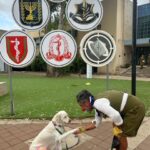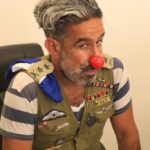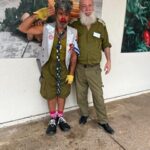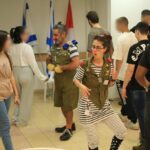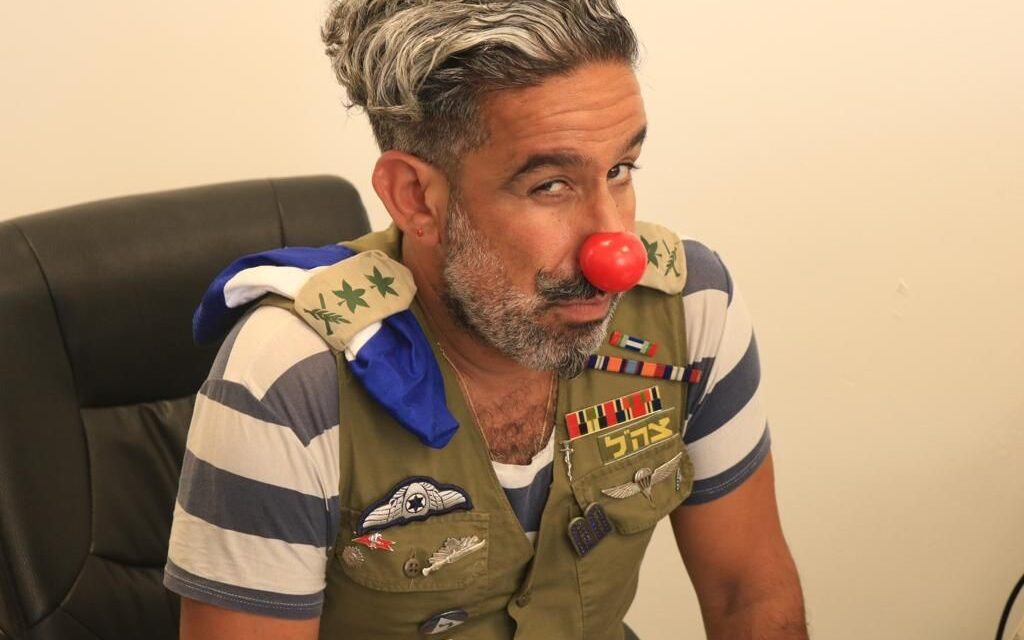
“Humor is more than just laughter; it’s a vital resource people use to lift their heads off the floor,” asserts David Dush Barashi, the seasoned medical clown who oversees the Clown Unit at Hadassah. With over two decades of service, Dush, or David Dush Barashi, has been an integral part of Hadassah, managing the Clown Unit at Ein Kerem and Mount Scopus. Alongside his fellow clowns, he brings joy and connection to hospitalized children, patients undergoing tests and treatments, and their families.
The Hadassah clowns, recognized for their heartwarming presence, are not merely entertainers but a crucial part of the therapeutic and nursing staff at the hospital. Dush believes in the power of humor, nonsense, empathy, and their unique clown language to uplift spirits in the hospital wards.
During the first week of the war, Dush, along with five other clowns, initiated a visitation system for war-wounded individuals arriving at Hadassah Ein Kerem and Hadassah Mount Scopus. Coordinating with social workers and head nurses, they brought calm, familyhood, and empathy into the departments, supporting both patients and their families. Their presence was not just about creating a colorful mess; it was about fostering connection and understanding in difficult times.
Dush, before his reserve duty, contributed his professional knowledge to intensive work with evacuees from the Gaza envelope relocated to Eilat. He introduced the concept of “mourning clowning,” acknowledging the need for support in situations of grief and mourning.
Now serving in the reserves at the IDF’s Homefront Rehabilitation Center Unit, Dush collaborates with mental health professionals to treat soldiers injured in combat responses. Together with clown Keren Asor, “Jonas,” Dush provides not only laughter but also vital tools for soldiers to rediscover the joy of life. They conduct resilience workshops, therapeutic sessions, and “Humor Pakal” group meetings, teaching essential principles of acting, clowning, and confidence-building.
Dush emphasizes that humor, for these soldiers, is more than laughter; it’s a critical resource to lift their heads off the floor. Even soldiers treated at Hadassah who later come to the Homefront Rehabilitation Center are grateful to see Dush and Jonam, recalling their shared journey.
Between reserve duty days, Dush makes short visits to Hadassah, reconnecting with friends and young patients in the pediatric wards. The uncertainty of the future and the challenges of processing these experiences loom, but Dush’s commitment to Hadassah remains unwavering. “My home is Hadassah, and my heart is here, no matter what. Together, we will deal with everything,” he affirms.


